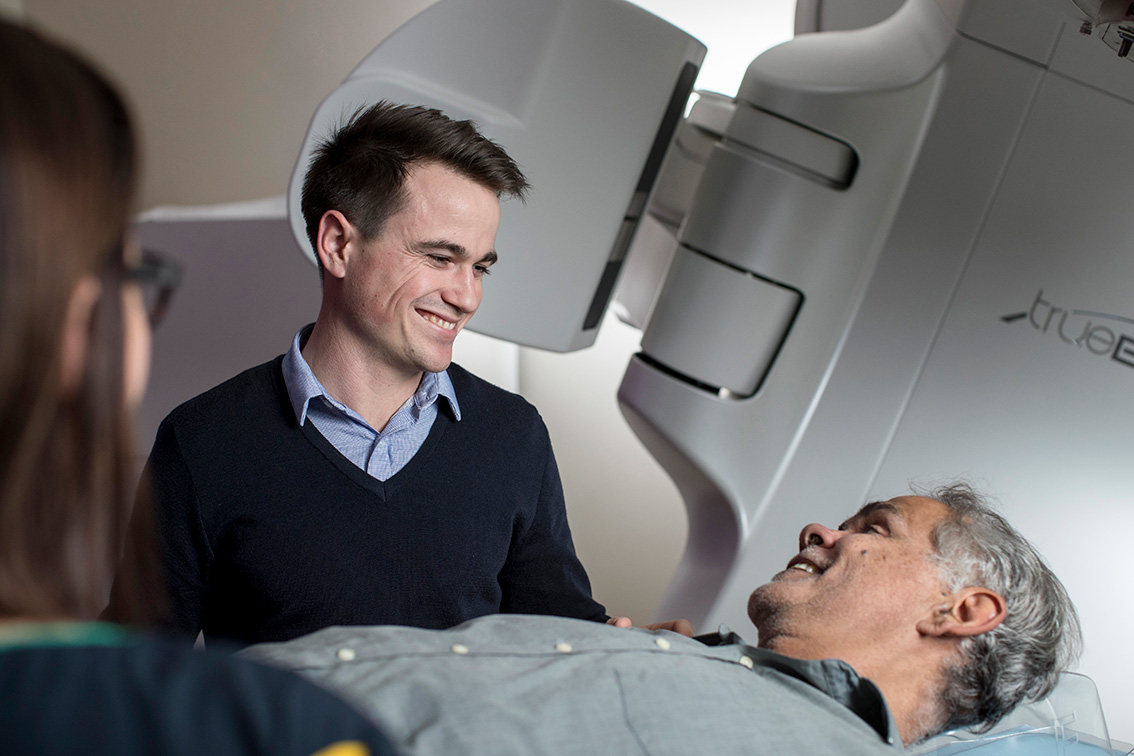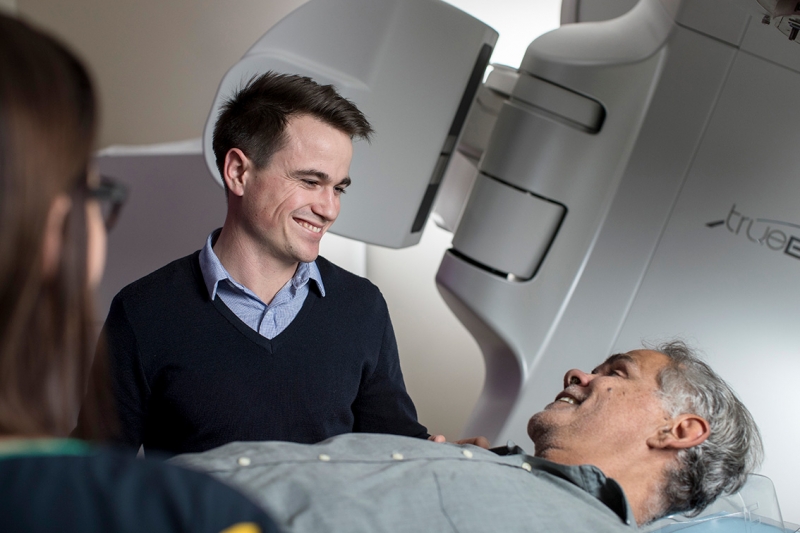Radiation therapy treatment can affect your body in different ways. It’s important to understand these effects and how you can keep your body healthy throughout treatment.
As radiation is targeted to a specific area of the body, you generally will only experience side effects in the area being treated. Your radiation oncologist and treatment team will discuss the type of side effects you may experience before your treatment begins.
Although most side effects are temporary and resolve after your radiation therapy has finished, there is a possibility that long-term effects may occur. Please discuss with your radiation oncologist as he/she is the best person to provide more details and this will be covered in the consent process before you start your treatment.

